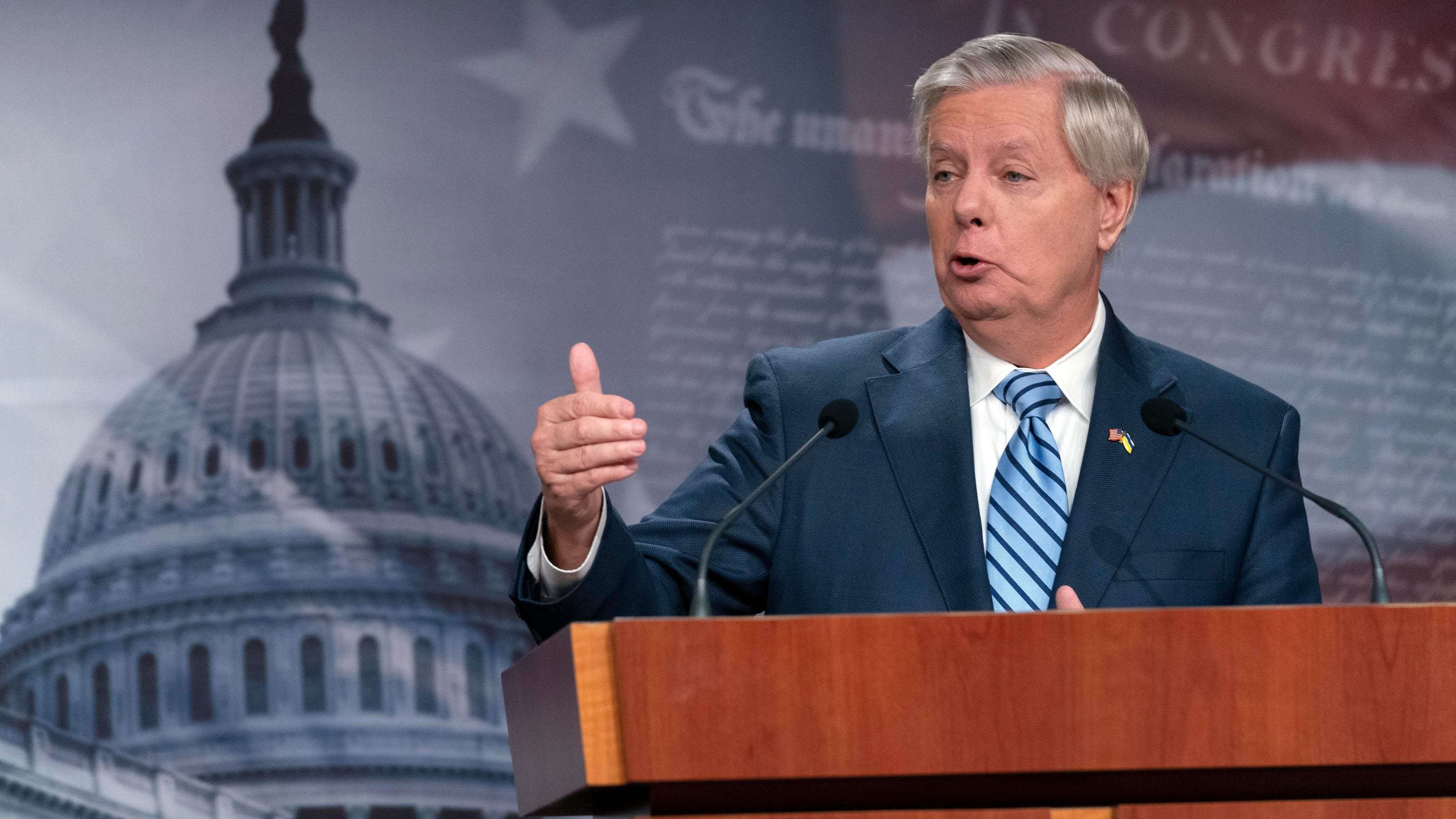Federal judge rejects Sen. Lindsey Graham's bid to quash grand jury subpoena in Georgia case
Show Caption Hide Caption Georgia DA Fani Willis gives interview about Trump election probe Fulton County District Attorney Fani Willis gives a sit-down interview about her investigation into Trump's election interference in Georgia. Michelle Hanks, USA TODAY
A federal judge in Georgia denied Sen. Lindsey Graham's bid to avoid testifying before a Atlanta-area grand jury investigating interference in the 2020 election, rejecting the Trump ally's claim that he was shielded from such scrutiny by legislative privilege.
U.S. District Judge Leigh Martin May ruled that Fulton County District Attorney Fani Willis had "shown extraordinary circumstances and a special need for Senator Graham’s testimony on issues relating to alleged attempts to influence or disrupt the lawful administration of Georgia’s 2020 elections."
The judge's ruling preceded another piece of bad news for key allies of former President Donald Trump in the Georgia investigation: an attorney for Trump personal attorney Rudy Giuliani said Fulton County prosecutors now regard Giuliani as a "target" of the investigation.
Graham, the South Carolina Republican had asserted that he was engaging in legitimate inquiries as a lawmaker under the Constitution's speech and debate clause when he contacted Georgia officials following the 2020 election.
Giuliani now a 'target' in Georgia probe: Rudy Giuliani now a 'target' in Georgia election interference investigation
"The Court finds that there are considerable areas of potential grand jury inquiry falling outside the Speech or Debate Clause’s protections," May ruled. "Additionally, sovereign immunity fails to shield Senator Graham from testifying before the Special Purpose Grand Jury."
The judge, however, left open the prospect that the privilege could apply to some questions posed by prosecutors working with the grand jury.
"The mere possibility that some lines of inquiry could implicate Senator Graham’s immunity under the Speech or Debate Clause does not justify quashing the subpoena in its entirety because there are considerable areas of inquiry which are clearly not legislative in nature," May wrote.
Graham will appeal the decision, according to a Monday statement issued by his office.
"The Constitution’s Speech or Debate Clause prevents a local official from questioning a Senator about how that Senator did his job," according to the statement. "Here, Senator Graham was doing his due diligence before the Electoral Count Act certification vote – where he voted to certify the election."
Last week, Graham said he would exhaust all legal remedies to defend his position.
"We will go as far as we need to go and do whatever needs to be done to make sure that people like me can do their jobs without fear of some county prosecutor coming after you," Graham said.
Graham placed at least two telephone calls to Georgia Secretary of State Brad Raffensperger and members of Raffensperger's staff in the weeks following the November 2020 election, seeking additional review of the absentee ballots, according to court documents filed in support of the subpoena request.
More: Sen. Lindsey Graham challenges Georgia grand jury subpoena, asserts legislative privilege
"The Witness also made reference to allegations of widespread voter fraud in the November 2020 election in Georgia, consistent with public statements made by known affiliates of the Trump Campaign," the court documents state.
Graham has previously denied claims that he was pressuring officials to exclude ballots, saying he was attempting to understand the method for which different states examine ballots.
"This is all politics," Graham's lawyers Bart Daniel and Matt Austin said last month. "Fulton County is engaged in a fishing expedition and working in concert with the January 6 Committee in Washington."
Graham's challenge comes after the same judge rejected a similar bid by Georgia Rep. Jody Hice, who has echoed Trump’s election fraud claims. Hice also argued that the Constitution’s speech and debate clause shielded him from law enforcement scrutiny related to his work as a legislator.

AudibleNod on August 15th, 2022 at 14:05 UTC »
The speech and debate clause of the Constitution is wild. Generally, its reserved for literally speaking on the House or Senate floor. But it allows congress people to say whatever fills their silly little heads without fear of lawsuit or most all exceptions to the First Amendment.
It has some other protections. But basically Ol' Linds is saying anything he said was under the guise of "legislative speech" and is shielded about as much as attorney-client privilege.
And once someone reads this to Boebert she's going to run wild with it.
livingfortheliquid on August 15th, 2022 at 14:04 UTC »
Why are Republicans so afraid to speak under oath. Hillary did for 11 hours.
Isabella_Bee on August 15th, 2022 at 14:02 UTC »
It's going to be fine, Lindsey - you can always plead the fifth . . . over and over again.